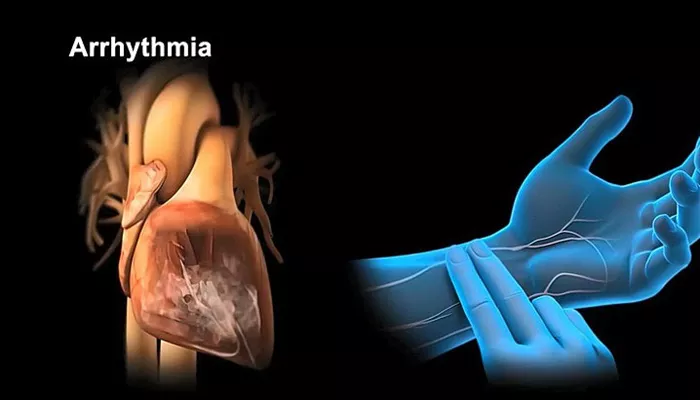Panic attacks are sudden episodes of intense fear or anxiety that often trigger severe physical reactions, even when there is no real danger or apparent cause. These episodes can be frightening and overwhelming, leading to various symptoms such as heart palpitations, shortness of breath, and dizziness. Many people experiencing a panic attack may wonder whether these episodes can lead to arrhythmia, which is an abnormal heartbeat. Understanding the relationship between panic attacks and arrhythmia is essential for both patients and healthcare providers.
Arrhythmias can range from harmless to life-threatening. Some common types include atrial fibrillation, ventricular tachycardia, and bradycardia. This article will explore the potential link between panic attacks and arrhythmias, examining how anxiety affects heart function and the mechanisms involved.
What Are Panic Attacks?
Panic attacks typically occur suddenly and can last for several minutes. Symptoms often include:
- Rapid heartbeat
- Sweating
- Trembling or shaking
- Shortness of breath
- Chest pain
- Nausea
- Dizziness or lightheadedness
- Feelings of unreality or detachment
These symptoms can be so intense that individuals may believe they are having a heart attack.
What Is Arrhythmia?
Arrhythmia refers to any change from the normal sequence of electrical impulses in the heart. This can cause the heart to beat too fast, too slow, or irregularly. While many arrhythmias are benign, some can lead to serious complications, including stroke or heart failure.
Types of Arrhythmias
Atrial Fibrillation (AFib): A common type of irregular heartbeat that can increase the risk of stroke.
Ventricular Tachycardia (VT): A rapid heart rate that may prevent the heart from filling with blood.
Bradycardia: A slower than normal heart rate, which can be problematic if it is too low.
How Panic Attacks Affect Heart Function
During a panic attack, the body enters a state of “fight or flight.” This response is triggered by the release of stress hormones like adrenaline. These hormones prepare the body to respond to perceived danger by increasing heart rate and blood flow to vital organs.
Mechanisms Linking Panic Attacks And Arrhythmia
Increased Heart Rate: Panic attacks can cause a significant increase in heart rate (tachycardia). This rapid heartbeat can lead to the development of arrhythmias, especially in individuals with pre-existing heart conditions.
SEE ALSO: How Long Does It Take for Arrhythmia to Go Away?
Electrolyte Imbalance: Hyperventilation, common during panic attacks, can lead to a decrease in carbon dioxide levels in the blood. This can cause an imbalance in electrolytes such as potassium and calcium, which are essential for normal heart function. An imbalance can trigger arrhythmias.
Vagal Response: Panic attacks can stimulate the vagus nerve, which can either speed up or slow down heart rate. This can lead to variations in heart rhythm, causing feelings of palpitations or irregular heartbeats.
Increased Sympathetic Nervous System Activity: The sympathetic nervous system, responsible for the “fight or flight” response, becomes highly active during a panic attack. This heightened activity can increase the risk of arrhythmias.
Psychological Stress: Chronic anxiety and stress are known to have long-term effects on heart health. Individuals with panic disorder may have a higher risk of developing heart disease, which can further predispose them to arrhythmias.
Studies And Evidence
Research indicates a correlation between anxiety disorders and arrhythmias. A study published in the Journal of the American College of Cardiology found that patients with anxiety disorders were more likely to experience atrial fibrillation compared to those without anxiety.
Another study noted that individuals who frequently experience panic attacks reported higher rates of palpitations and irregular heartbeats. This suggests a potential link between the frequency of panic attacks and the occurrence of arrhythmias.
Factors Influencing the Relationship
Pre-existing Heart Conditions: Individuals with existing heart conditions may be more susceptible to arrhythmias during panic attacks. For these patients, the combination of anxiety and an underlying heart condition can be particularly dangerous.
Lifestyle Factors: Poor lifestyle choices, such as lack of exercise, poor diet, and smoking, can exacerbate both anxiety and heart health issues. This can increase the likelihood of arrhythmias during panic attacks.
Medications: Some medications used to treat anxiety can also affect heart rhythm. For instance, certain antidepressants may increase the risk of arrhythmias, especially in sensitive individuals.
Managing Panic Attacks And Reducing the Risk of Arrhythmia
Therapeutic Interventions
Cognitive Behavioral Therapy (CBT): This type of therapy helps individuals understand and change their thought patterns related to anxiety and panic attacks.
Medication: Antidepressants or anti-anxiety medications can be effective in reducing the frequency and severity of panic attacks.
Relaxation Techniques: Practices such as mindfulness, yoga, and deep-breathing exercises can help manage anxiety and reduce the likelihood of panic attacks.
Lifestyle Modifications
Regular Exercise: Physical activity can help reduce anxiety levels and improve overall heart health. It is essential to consult with a healthcare provider before starting any exercise program, especially for those with heart conditions.
Healthy Diet: A balanced diet rich in fruits, vegetables, whole grains, and lean proteins can promote heart health.
Avoiding Stimulants: Reducing or eliminating caffeine and nicotine can help decrease anxiety levels and the risk of arrhythmias.
Adequate Sleep: Ensuring proper sleep is crucial for managing anxiety and maintaining heart health.
Conclusion
Panic attacks can indeed lead to arrhythmias, particularly through mechanisms such as increased heart rate, electrolyte imbalances, and heightened sympathetic nervous system activity. Understanding this relationship is vital for individuals experiencing panic attacks and healthcare providers who treat them.
If you or someone you know experiences frequent panic attacks or irregular heartbeats, it is essential to seek medical advice. Early intervention can help manage symptoms effectively and reduce the risk of developing more severe heart conditions.
Related topics:
- Can Lyme Disease Cause Arrhythmia?
- How Does Ischemia Cause Arrhythmia?
- How Does Thrombolysis Treatment Cause Arrhythmias?

